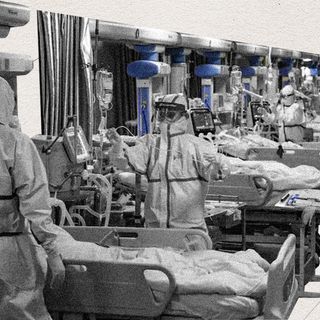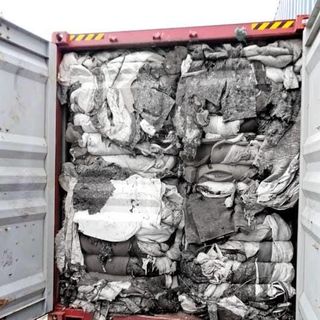A new ‘super-enyzme’ that disintegrates plastic within days might just bring the global plastic pollution problem under control. The enzyme owes its origins to Ideonella sakaiensis, the plastic-eating bacteria found at a Japanese waste site in 2016.
The plastics that the bacteria broke down were PET (polyethylene terephthalate), which is commonly used in beverage packaging. Though PET plastics are recyclable, they take hundreds of years to break down naturally. Post the 2016 discovery, scientists engineered PETase — one of the many enzymes Ideonella sakaiensis used to eat plastic, which broke down plastic bottles within days. The most recent version, according to research published in Proceedings of the National Academy of Sciences, is a cocktail of PETase and a partner enzyme found in the bacterium — MHETase, which breaks down plastic six times faster than the enzyme created in 2018. As of now, this enzyme works on both PET plastics and PEF (polyethylene furanoate), which is commonly used to make beer bottles.
“Our first experiments showed that they did indeed work better together, so we decided to try to physically link them, like two Pac-men joined by a piece of string,” Professor John McGeehan, study co-author and University of Portsmouth faculty, told New Atlas. “It took a great deal of work…but it was worth the effort – we were delighted to see that our new chimeric enzyme is up to three times faster than the naturally evolved separate enzymes, opening new avenues for further improvements.”
Related on The Swaddle:
Reusing Seafood Shells Could Be the Solution to Curbing Plastic Production, Ocean Waste
The enzyme recycles plastic back to the original elements that created the polymer, creating hope for an endless recycling process. McGeehan also states that this would reduce overt reliance on fossil fuels, as currently, the elements used to create plastics are obtained from oil and gas.
Now, scientists intend to create enzymes faster than this one, in order to optimize them to tackle the enormous amount of plastic waste produced till now. “If we can make better, faster enzymes by linking them together and…work in partnership [with companies], we could start doing this within the next year or two.” McGeehan told The Guardian.




